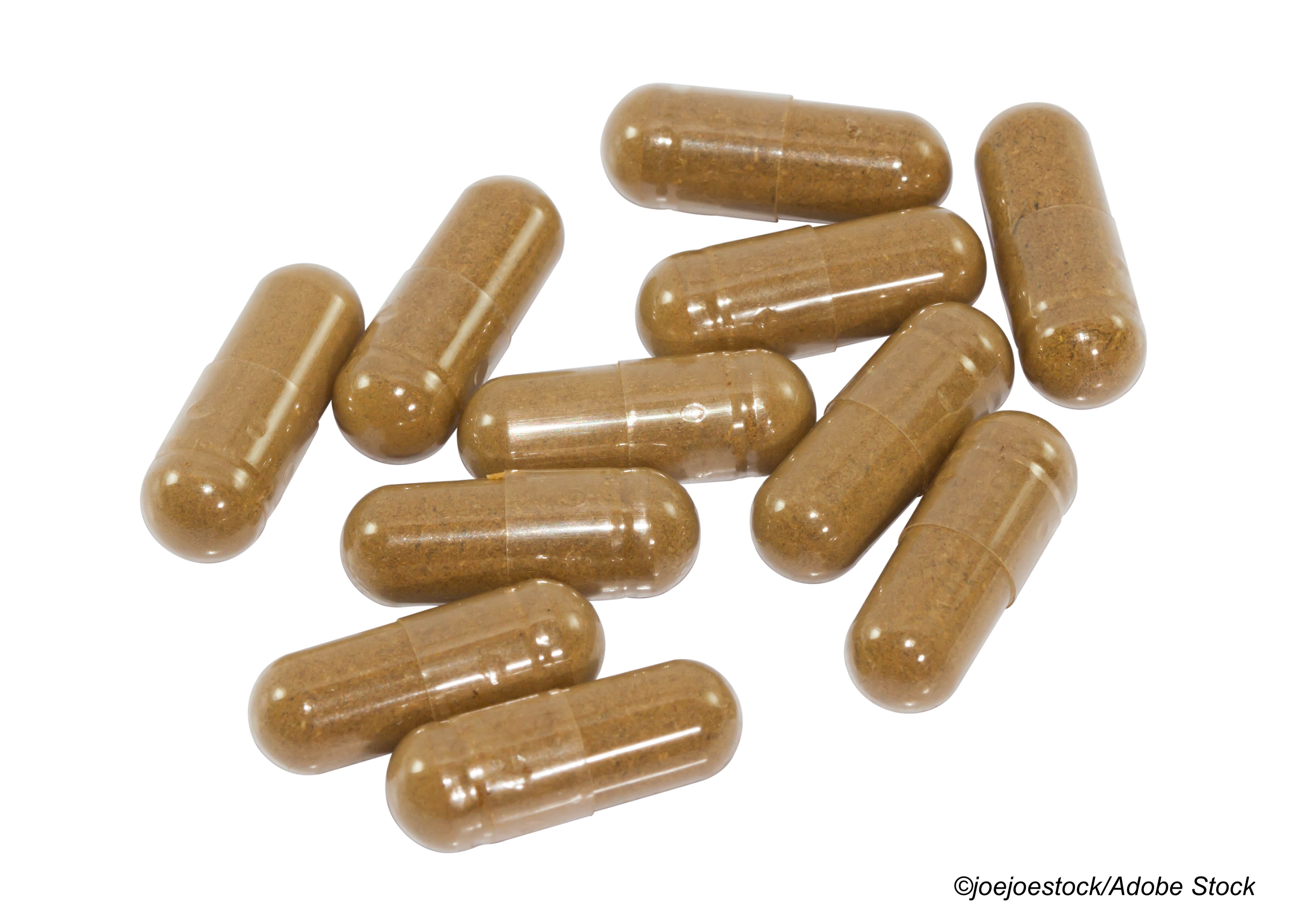
Merck and Ridgeback Biotherapeutics announced plans to seek FDA authorization for an investigational oral antiviral pill, molnupiravir, on the weight of interim trial results suggesting the drug significantly cut risk of hospitalization or death in patients with mild-to-moderate Covid-19 infection.
Molnupiravir, an oral form of a potent ribonucleoside analog designed to inhibit the replication of SARS-CoV-2, was being assessed in the phase III, randomized, placebo-controlled, double-blind MOVe-OUT trial. An independent data monitoring board recommended stopping the study early based on these positive results, the manufacturer noted. The results have yet to be peer reviewed.
According to the manufacturer, results from the planned interim analysis of the trial showed that treatment with molnupiravir—administered orally once every 12 hours for 5 days—reduced the risk of hospitalization or death by approximately 50%; 7.3% of patients who received molnupiravir were either hospitalized or died through Day 29 following randomization (28/385), compared with 14.1% of placebo-treated patients (53/377); P=0.0012. Through Day 29, no deaths were reported in patients who received molnupiravir, as compared to 8 deaths in patients who received placebo.”
And, the manufacturer added, “based on the participants with available viral sequencing data (approximately 40% of participants), molnupiravir demonstrated consistent efficacy across viral variants Gamma, Delta, and Mu.”
The interim results suggest the antiviral pill’s efficacy is lower than currently authorized monoclonal antibody treatments for Covid-19—for example, Regeneron Pharmaceuticals’ antibody cocktail REGEN-COV was recently shown to reduce risk of hospitalization or death from Covid-19 by around 70% compared to placebo, as previously reported by BreakingMED. But monoclonal antibodies are expensive, require intravenous administration, and are in short supply due to massive demands for the treatment.
Given that context, an easy to take pill has the potential to make a major mark on the Covid-19 pandemic, Angela Rasmussen, PhD, of the Vaccine and Infectious Disease Organization at the University of Saskatchewan, told The New York Times.
Rasmussen noted that, if molnupiravir’s efficacy results “hold up at the population scale, that is going to translate to an objectively larger number of lives saved potentially with this drug… Maybe it isn’t doing the same numbers as the monoclonal antibodies, but it’s still going to be huge,” the Times reported.
The manufacturer plans to submit an application for Emergency Use Authorization (EUA) “as soon as possible,” with Merck CEO Robert M. Davis stating that the company is “optimistic that molnupiravir can become an important medicine as part of the global effort to fight the pandemic” in a company press release. If the FDA grants an EUA for molnupiravir, it may become the first oral antiviral medication authorized for Covid-19, and the second antiviral for Covid overall, after remdesivir.
And Merck is throwing full support behind the drug—the company announced that it expects to produce 10 million courses of the treatment by the end of this year, with more expected to follow in 2022, and it has already locked down a deal with the U.S. government to supply approximately 1.7 million courses of molnupiravir in the event of an authorization.
“Merck previously announced that the company has entered into non-exclusive voluntary licensing agreements for molnupiravir with established generic manufacturers to accelerate availability of molnupiravir in more than 100 low- and middle-income countries (LMICs) following approvals or emergency authorization by local regulatory agencies,” the company added.
Molnupiravir is also being evaluated for post-exposure prophylaxis in the phase III MOVe-AHEAD trial, which is designed to assess the antiviral’s ability to stem Covid-19’s spread within households.
While molnupiravir is poised to become the first oral antiviral authorized for Covid, it may not be the last—Pfizer also threw its hat in the antiviral ring earlier this week, announcing the start of the phase II/III EPIC-PEP study of its investigational antiviral candidate PF-07321332, and Atea Pharmaceuticals is working with Roche on its own oral antiviral treatment, AT-527.
John McKenna, Associate Editor, BreakingMED™
Cat ID: 190
Topic ID: 79,190,730,933,190,926,192,927,151,928,925,934


